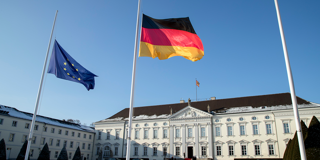For the European Union to work, its strong members must be prepared to show solidarity with its weak members. And as long as Germany, the strongest of them all, opposes creating some mechanism to realize this imperative, the EU will limp from crisis to crisis – probably shedding members along the way.
LONDON – Who runs the European Union? On the eve of Germany’s general election, that is a very timely question.
One standard reply is, “The EU’s member states” – all 28 of them. Another is, “The European Commission.” But Paul Lever, a former British ambassador to Germany, offers a more pointed answer: Berlin Rules is the title of his new book, in which he writes, “Modern Germany has shown that politics can achieve what used to require war.”
Germany is the EU’s most populous state and its economic powerhouse, accounting for over 20% of the bloc’s GDP. Determining why Germany has been so economically successful appears to be elusive. But three unique features of its so-called Rhineland model stand out.

LONDON – Who runs the European Union? On the eve of Germany’s general election, that is a very timely question.
One standard reply is, “The EU’s member states” – all 28 of them. Another is, “The European Commission.” But Paul Lever, a former British ambassador to Germany, offers a more pointed answer: Berlin Rules is the title of his new book, in which he writes, “Modern Germany has shown that politics can achieve what used to require war.”
Germany is the EU’s most populous state and its economic powerhouse, accounting for over 20% of the bloc’s GDP. Determining why Germany has been so economically successful appears to be elusive. But three unique features of its so-called Rhineland model stand out.